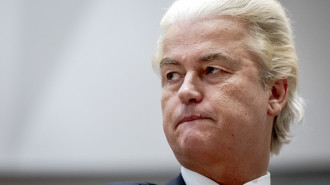Sudan opposition calls grow for march on Bashir's palace
An umbrella coalition of independent professional unions said its members will march on Tuesday on the Republican Palace in Khartoum and submit a written demand for Bashir to step down. It also called on non-members to join in.
"Together we can rebuild everything and climb the ladder to progress and civilisation," said a statement by the coalition, an independent entity that operates outside of official unions loyal to the government.
"Let us all unite. Come and join so we can realise the will of the people."
One of Sudan's largest political groups, the Democratic Unionist Party, expressed its support and called on its supporters to join Tuesday's march.
The party enjoys wide support in eastern and northern Sudan. The Sudanese Conference Party, a small group with an inclusive agenda, also said it supports the march.
If it materialises, the march on the palace at the heart of Khartoum along the Blue Nile has the potential to turn violent.
The country's military, from which Bashir hails, vowed on Sunday to rally behind the Sudanese leader and emphasised in a statement that it was operating in harmony with the police and the country's feared security agencies.
Protests erupted on Wednesday, initially in response to steep price hikes and shortages, particularly of bread. They spread to multiple cities, with crowds usually numbering in the hundreds, and have become focused on forcing Bashir out of office.
Bashir, in his mid-70s, seized power in a 1989 military coup that overthrew an elected but ineffective government. He is wanted by the International Criminal Court for committing crimes against humanity and genocide in the western Darfur region.
The demonstrations have been met with a heavy security crackdown. An opposition leader said on Saturday that 22 protesters were killed in clashes with police.
The government, which has imposed a near-total news blackout on the protests, has acknowledged fatalities but gave no figures. Still, the marches have continued, suggesting a level of popular discontent that Bashir will find difficult to control.
Agencies contributed to this report.
Follow us on Twitter: @The_NewArab







 Follow the Middle East's top stories in English at The New Arab on Google News
Follow the Middle East's top stories in English at The New Arab on Google News


